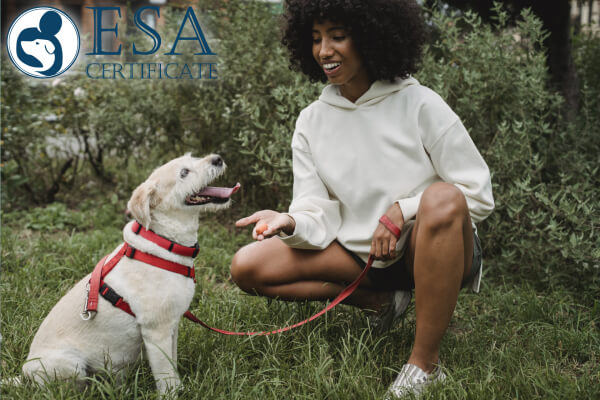Emotional support animals are part of your daily life as they provide you with emotional, social and physical support. Therefore, it is important to know how to maintain and care for them so that they are in the best shape and fully perform the functions for which you keep them. You must keep them healthy, happy and active. Below are helpful tips for caring for your emotional support animal.
Comfortable environment

Provide a clean, safe and comfortable environment for your ESA. Always consider weather conditions and seasonal changes when designing a home for them. Make sure their drawers or cages are well secured and poisonous and allergenic items are kept away from their surroundings. ESAs with good houses work better, so it is important that they feel good and comfortable.
Proper feeding

Feed them good and healthy food and make sure there is enough for them. Feeding also includes providing them with fresh water. Proper nutrition is essential for their growth and performance. If you are not sure which food is right for your service animal, ask your veterinarian for advice.
Good communication system

Communicate with your helper animal by teaching it to recognize specific keywords and phrases. You can also use the services of an animal behavior specialist to better understand the body language and behavior of your support animal. This is very important if you want to establish a strong connection with your ESA.
Regular exercise

Assistance animals also need exercise to keep fit. Take them for walks regularly – this will help them get used to socializing with other people and get to know their surroundings, will help them expend excess energy, and will also allow you to get some fresh air.
Animal vaccines

Visit your veterinarian regularly and have your ESA vaccinated routinely. This is vital when it comes to animal care. Always follow your veterinarian’s appointment schedule to protect your animal from disease and improve its immunizations.
Proper means of identification

You must provide your ESA with the proper means of identification in case it gets lost or lost. You can start with basic identification, like a secure collar and a tag containing all your contact information, or go the more complex route, placing a microchip under the animal’s skin to make it easier to track.
Good hygiene

It is your responsibility to provide and teach emotional support animals good hygiene habits such as brushing teeth, combing hair and trimming nails. Toilet training is also very important so that they do not create a mess in your home or in the establishments where they need to be taken.

